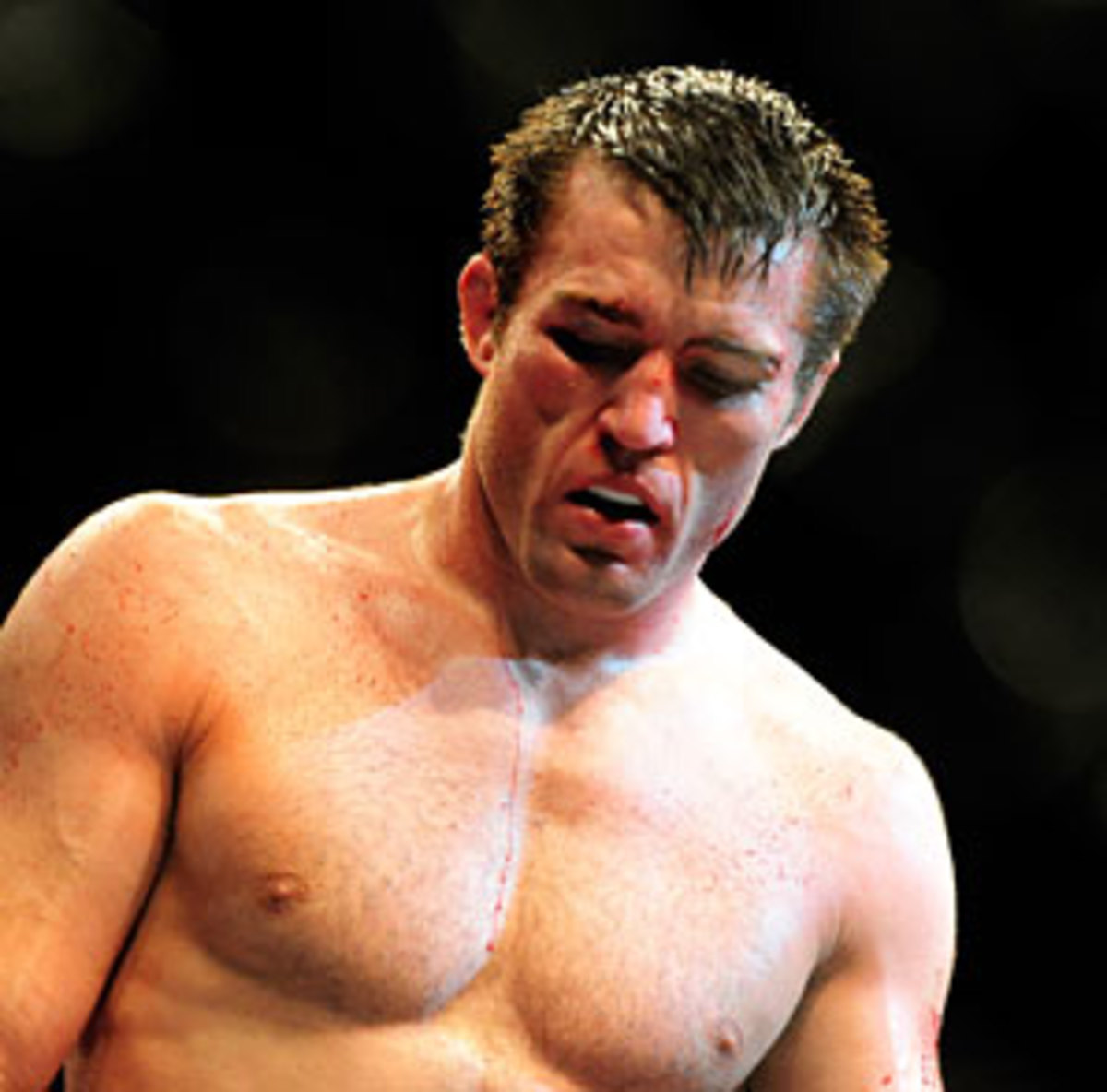
Sonnen preps for UFC 136 return
There's a reason it's been quiet on the MMA front lately -- perhaps too quiet. It's because UFC middleweight Chael Sonnen has been missing in action, choosing (mostly) to keep his mouth shut in interviews while waiting for his licensing situation to get sorted out after that bit of unpleasantness in California following his middleweight title fight with Anderson Silva last August.
It seems you can't just roll up to a pro fight and tell the commission that, oh by the way, you've been supplementing your normal testosterone levels with a little outside help lately.
At least, you can't do it without consequences, just like you can't make up stories about conversations you never had with other commissions you never talked to without there being similar consequences.
So Sonnen took his slap on the wrist, did his time on the sidelines, and now he's back. He's got a fight with Brian Stann planned for UFC 136 in October, and a brand new interview with MMAFighting.com's Ariel Helwani in which he's up to his old tricks again, just making stuff up as he goes, and making people laugh in the process.
Now we know how he spent all that time off: he was coming up with new material.
When asked about Sonnen finally reaching the end of his stay in licensing purgatory last week, UFC president Dana White said it was about time that the athletic commissions let his most outspoken middleweight get back to work. That whole testosterone thing? White chalked it up to "some bad decisions," and then promised to get Sonnen back in action as soon as possible.
It's a curious response, especially since Nate Marquardt was just released from the UFC for his inability to get the whole testosterone use thing sorted out to the satisfaction of the athletic commissions. But clearly, what White and the UFC care about is less what's in a fighter's body than how it affects the bottom line.
If you clear it so the athletic commissions don't yank you from the card, do as you please. If you don't, then we've got a problem.
Only now that Sonnen is set to make his return to action this fall at a UFC event in Houston, does that mean the testosterone issue is all sorted out? As in, is he going to be using it from now until the day he retires, and if so, is the MMA world OK with that?
It's fitting that he should make his return in the state of Texas, where a Clydesdale could probably get licensed to fight as long as it got its paperwork in on time. Getting a therapeutic-use exemption for testosterone by October should probably be no problem, as long as Sonnen goes about it the right way.
The problem is, when we get bogged down in the issues regarding which hoops you have to jump through in order to use it, we ignore the question of whether you should be using it at all.
Think about it from Stann's perspective. He knows that in roughly three months he'll be fighting a guy who is most likely getting testosterone injections all through training. Whether that guy has naturally low levels of the hormone or not, he's getting an artificial boost, which absolutely helps him with training and recovery in the lead-up to the fight. He'll get those levels down to within a pre-determined (and somewhat arbitrary) range by fight night, but that doesn't mean that Sonnen hasn't gotten a performance-enhancing boost just to get him there.
Is that fair? Does it only become fair if Sonnen can prove that his body naturally has low testosterone levels? Are fighters universally guaranteed a right to a certain amount of testosterone, regardless of how they have to go about getting it and why they don't already have it in their bodies?
We don't have the answers to these questions, probably because they're not the ones that either the UFC or the athletic commissions are interesting in pursuing. Instead, we're focusing on the how of hormone replacement therapy, rather than the why and the if.
The how is the easy part. It involves doctors and tests and paperwork, and in that way it all seems very official.
But if the only difference between illegal performance-enhancing drugs and the legal kind is a doctor's note and a thumbs-up from an athletic commission, then we're not only failing to discourage PED use, we're normalizing it.
And nothing should alarm us more than an attempt to make a statistical anomaly -- like, say, a rash of 20- and 30-something pro athletes who amazingly suffer from chronically low testosterone levels, despite physiques and careers that suggest anything but -- into a sight so commonplace that it's hardly mentioning anymore.
Then we won't have a PED problem in MMA. We'll have a PED institution.





